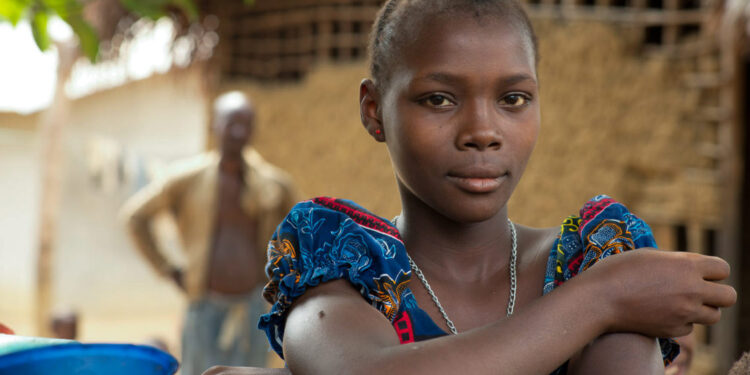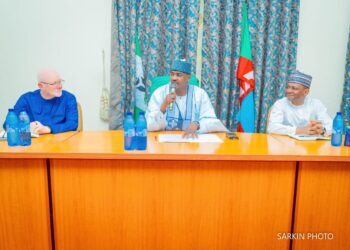The Federal Government has commenced engagements with relevant UN agencies and other stakeholders to end the practice of early child marriage in the country.
The agencies are United Nations Children’s Fund (UNICEF) and United Nations Population Fund (UNFPA).
Ms Cristian Munduate, UNICEF’s Country Representative, who spoke in Abuja at a National Dialogue on Ending Child Marriage in Nigeria, said that Nigeria had nearly 25 million child brides with prevalence in Bauchi, Jigawa and Zamfara.
Munduate said that child marriage was a harmful practice under international human rights law which was often associated with severe forms of violence against women and girls, including intimate partner violence.
“In Nigeria, there are nearly 25 million child brides; with alarming prevalence rates in states such as Bauchi that has 74 per cent child brides.
“Also, Jigawa has 72 per cent of its children getting married before the age of 18, Katsina has little less at 69 per cent and Zamfara has nearly 67 per cent of its children getting married.’’
While calling for more investment in education for all children, the country representative said the practice of child marriage not only violated human rights but also hindered Nigeria’s social and economic development.
“A recent study by the Federal Ministry of Women Affairs and UNICEF estimates an annual cost of 10 billion dollars as economic burden of child marriage to the nation.
“The study also projects a potential GDP boost of nearly 25 per cent upon its eradication.
“The consequences of child marriage ripple through society, impacting not only the lives of child brides but the entire fabric of our nation,” she said.
Also, Mr Koessan Kwawu, Deputy Representative, UNFPA, said that the practice had adverse effects on the health, education and future opportunities of the child.
He called on stakeholders to seek an end to the practice.
On her part, Mrs Uju Kennedy-Ohanenye, Minister, Federal Ministry of Women Affairs, stressed on the role of all stakeholders in meeting the target of ending child marriage by 2030.
Kennedy-Ohanenye said there was need to educate and engage traditional, religious women groups and other stakeholders at the community level on the negative effects of the practice on the girl-child.
Prof. Olufolake Abdulrazaq, Wife of Kwara Governor and Chairperson, Nigerian Governor’s Spouses Forum, said that ending child marriage in Nigeria involved leveraging on the instruments of the law.
“Also, there is need for community efforts and the good standing of leaders of socio- cultural and religious institutions; civil society organisations and development partners to assess the concerns posed by child marriage.
“As well as getting rid of endemic dysfunctional aspects of the various cultural traditions in the country which have an incorrect gender discriminatory norm,” she said.
Sultan of Sokoto, Muhammad Sa’ad Abubakar 111, represented by Alhaji Attahiru Ahmed, Emir of Zamfara, said there was the need for children to attain at least attain 18 years with a minimum of secondary school education before getting married.
Similarly, President, Christian Association of Nigeria (CAN), Archbishop Daniel Okoh, represented by Dr Micheal Akinwale, Methodist Church, Nigeria, harped on the need for investment in the future of children to end child marriage.
The News Agency of Nigeria (NAN) reports that there were also panel discussions on the role of traditional and religious leader in addressing child marriage as well as innovative solutions and proven strategies to address child marriage. (NAN)











